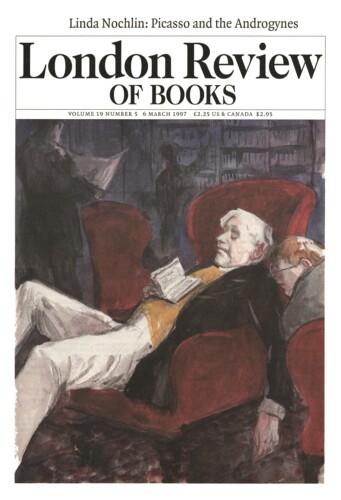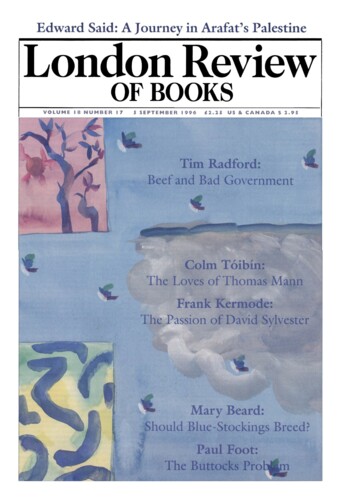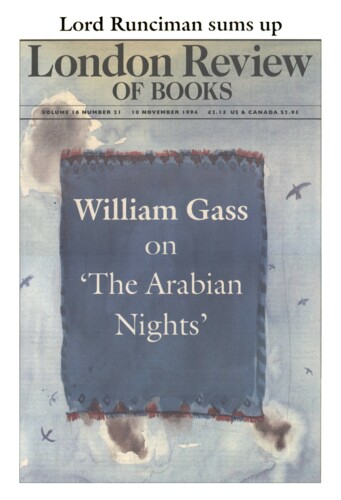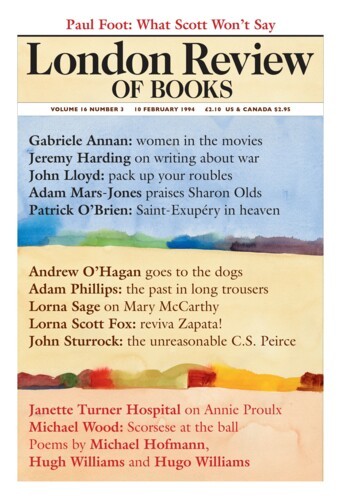James MacGibbon
James MacGibbon left his Edinburgh school to work in publishing and continued to do so with two breaks (a brief frolic in advertising and the war years) until he retired in 1984.
Letter
P.R. Bonnett (Letters, 20 March) does not give any examples of Tobias Jones’s ‘socialist claptrap’ in his letter but I infer that he is a Conservative and disapproves of political articles being published in a literary journal. But it is these occasional articles that would make it impossible for me to give up the LRB. Conrad Russell’s brilliant piece in the same issue is a good example. I...
Letter
The Buttocks Problem
5 September 1996
Paul Foot’s Diary recalls my own experience of flogging at Fettes where Chenevix-Trench’s penchant for the cane led to his second, final, sacking. But beating was a long-established practice at that snobby Edinburgh school, and I was disappointed to hear Tony Blair, another Old Fettesian, declare in the course of a BBC radio interview, that he had been at a flogging seminary and it ‘had done...
Letter
On the Edge
10 November 1994
I was pulled up sharply by Mary Hawthorne’s use of the fashionable buzzword ‘parameter’ in her review of The Informers by Bret Easton Ellis, when she wrote that he was ‘pushing to the limit the current parameters of literary transgression’ (LRB, 10 November). In the current edition of Sir Ernest Gowers’s Plain Words we are warned that it is ‘a mathematical term which, it is safe to say,...
Letter
Fifty Years On
23 June 1994
Richard Wollheim’s account of his war experiences (LRB, 23 June) is moving and masterly. His initial pacifism, his subsequent cool courage and the closing comment on whether ‘the haphazard killing’ was worthwhile without an eventual ‘change of heart’ says all that needs to be said about the futility of war. There is much else in the article about how war dulls human reaction to brutality....
Letter
Broad-Minded Kleinians
10 February 1994
The trouble for the layman when reading about psychoanalysis is that so much of the theorising is obfuscating, however clear it may be to the professional. I was puzzled by Adam Phillips’s review of books by Christopher Bollas and Malcolm Bowie (LRB, 10 February). What does he mean when he writes: ‘For the patient in psychoanalysis the most disabling insights are the ones he cannot forget?’ If...
Read anywhere with the London Review of Books app, available now from the App Store for Apple devices, Google Play for Android devices and Amazon for your Kindle Fire.
Sign up to our newsletter
For highlights from the latest issue, our archive and the blog, as well as news, events and exclusive promotions.





